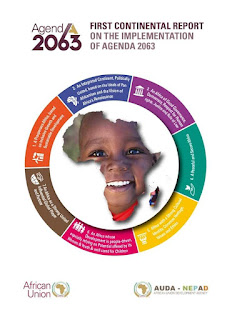THE AFRICA WE WANT
Socioeconomic status, shaped by factors such as ethnicity and literacy, underscores health determinants. Achieving socioeconomic transformation involves fundamental shifts in economic and social practices, encompassing job dynamics, inheritance, and connections with the world. Striving for sustainability in development, Africa aims for balanced economic growth, price stability, full employment, and environmental protection, fostering the cohesion of its diverse nations.
Envisioning a united Africa under a single government and currency, the potential emerges for coordinated efforts and specialization in economic activities. The consolidation of agricultural endeavors, which constitute a substantial portion of the GDP, could enhance employment and living standards. Additionally, a unified Africa could navigate international trade challenges more effectively, diminishing external pressures and enabling the continent to add value to its mineral resources locally.
Investing in sectors like forestry and fishing, Africa has the potential to elevate its GDP and establish itself as a self-sufficient market. Through internal production and the export of finished products, the continent can bolster its economic foundation, creating opportunities for infrastructure development and improved living standards. A concerted effort to invest in these economic activities could propel Africa toward the envisioned socio-economic transformation.
Inspired by the American dream, Africans aspire to offer every child equal social and economic mobility, creating a 'Land of opportunity.' This dream hinges on rewarding intelligence, skill, and effort, challenging notions tied to wealth and advocating for reduced income disparities. As Africa charts its course towards 2063, the vision of a promising future aligns with efforts to transform the continent's socio-economic landscape through collaboration, innovation, and shared goals.
Socioeconomic transformation, rooted in sustainability and balanced growth, emerges as the cornerstone of Africa's aspirations. The continent envisions a shift towards self-sufficiency, value addition to its resources, and the establishment of a robust internal market. By investing in key sectors like forestry and fishing, Africa aims to elevate its GDP, create employment opportunities, and enhance overall living standards.
The dream of a 'Land of opportunity' for every African child aligns with the continent's commitment to reward intelligence, skill, and effort while challenging ingrained notions tied to wealth. As Africa moves forward, it envisions dismantling barriers through regional collaborations, trade blocs, and a shared commitment to sustainable development. This trajectory, coupled with a focus on innovation and infrastructure, positions Africa to stand among global leaders in socioeconomic status by 2063.







.png)


Well done Tinotenda.I cannot put into words how proud I am of you.Keep inspiring!!!
ReplyDeleteLove this. Keep up
ReplyDeleteVery well written Tino. Thank you for sharing!!
ReplyDeleteGood work indeed, this is great baba
ReplyDeleteWell said my brother
ReplyDeleteGreat post there, well thought and its full of leadership. Keep it up
ReplyDeleteThis piece is more than just exquisite Mr. Ambassador. Thank you, it got me to be thankful of our own Africa.
ReplyDelete